“Orientalism was ultimately a political vision of reality whose structure promoted the difference between the familiar (Europe, West, “us”) and the strange (the Orient, the East, “them”).” — Edward Said
During my college years immersed in the vibrant sounds of 80s music, I discovered “One Night in Bangkok” on YouTube, instantly captivated by its unique sound. This song, a standout track from the musical Chess, composed by the ABBA duo Benny Andersson and Björn Ulvaeus with lyrics by Tim Rice, tells a story set against the backdrop of the Cold War, featuring chess grandmasters from the U.S. and the Soviet Union. Murray Head, portraying “the American” Freddie Trumper, delivered a chart-topping performance in 1985 with “One Night in Bangkok,” one of the musical’s most memorable pieces.
However, beneath the catchy melody and striking visuals, both the song and its music video exemplify a classic case of orientalism. This term refers to representations that construct the Middle East and Asia as the “Other,” a concept deeply rooted in colonialist and often racist perspectives. The ‘Orient’ is frequently homogenized and portrayed in a patronizing light by Western powers, reinforcing the West’s self-image as rational and progressive. “One Night in Bangkok” is a potent example of this, showcasing orientalism so profoundly that it warrants a thorough examination, especially for those interested in the cultural context of a seemingly simple “Bangkok Chess Song.”
The song immediately sets an orientalist tone with its opening bars. Middle Eastern-sounding riffs and strings dominate the introduction, highlighting the problematic amalgamation inherent in orientalist portrayals. Bangkok, the bustling capital of Thailand, is geographically distant from the Middle East. Yet, through the lens of orientalist representation, such crucial geographical distinctions are conveniently blurred, painting a monolithic and undifferentiated “East.”
Around the 0:25 mark in the music video, the protagonist dramatically emerges from a room shrouded in smoke. This deliberate use of smoke adds a layer of ‘mystical’ ambiguity to the scene, immediately casting Bangkok as an enigmatic and mysterious locale. This kind of mystification is a recurring motif in orientalist depictions, turning the East into a land of exotic secrets and hidden depths, far removed from the mundane reality of Western life.
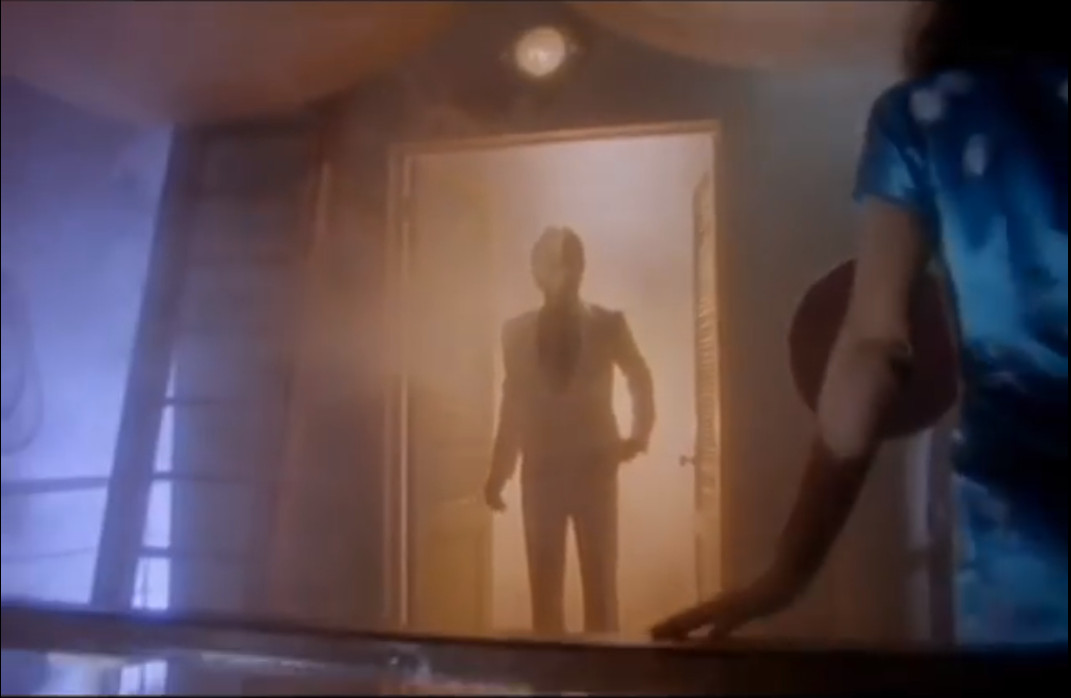 Murray Head Emerging in Smoke in the One Night in Bangkok Music Video
Murray Head Emerging in Smoke in the One Night in Bangkok Music Video
The very first lyric of the song encapsulates this issue succinctly:
Bangkok, Oriental city
By labeling Bangkok as an “Oriental city,” the song immediately situates it within a long and problematic history of orientalist representation. This single phrase evokes images of mystification, otherness, and a sense of the exotic that is constructed from a Western perspective. It sets the stage for the stereotypes and misrepresentations that follow, effectively branding Bangkok and, by extension, Thailand, as part of a generalized and often fantasized “Orient.”
And the city don’t know that the city is getting
The creme de la creme of the chess world in a
Show with everything but Yul Brynner
“The American,” as he’s aptly named, immediately adopts a condescending tone, suggesting that Bangkok is unprepared for the arrival of the “creme de la creme” of the chess world. This implies that the city, and by extension Thailand, is somehow less sophisticated or developed than Western powers. The sarcastic reference to Yul Brynner, known for his role as the King of Siam in The King and I, adds another layer of complexity. The King and I, ironically banned in Thailand for its inaccurate portrayal of the monarchy, is invoked in a way that highlights Western cultural dominance and misrepresentation. When the American remarks, “All change, don’t you know that when you/Play at this level there’s no ordinary venue,” he suggests Bangkok is not just unprepared but is inherently “not ordinary,” tinged with an undercurrent of disdain. His subsequent exclamation, referring to Bangkok as “or, or this place!” further emphasizes his dismissive attitude. This sets up the chorus, which delves deeper into orientalist tropes:
One night in Bangkok and the world’s your oyster
The bars are temples but the pearls ain’t free
You’ll find a God in every golden cloister
And if you’re lucky then the God’s a she
I can feel an angel slidin up to me
A significant portion of the song relies on orientalist stereotypes, portraying Bangkok and the broader ‘Orient’ as a land of harems and readily available sex workers. This chorus is a prime example. The line “And if you’re lucky then the God’s a she” is a thinly veiled reference to kathoey, a Thai term for transgender women or effeminate men. The inclusion of this element taps into a recurring theme in orientalist discourse: trans panic and the exoticization of gender fluidity in non-Western cultures. The chorus, therefore, paints a picture of Thailand as teeming with sex workers, many of whom are presented as deceptive about their gender identity, perpetuating harmful and vile stereotypes. This representation reduces Bangkok to a destination for sexual tourism, devoid of its rich cultural and historical context.
During this initial chorus in the music video, we are shown a montage of people of color, dressed in stereotypical “oriental” clothing, looking upwards in prayer as they lip-sync the chorus.
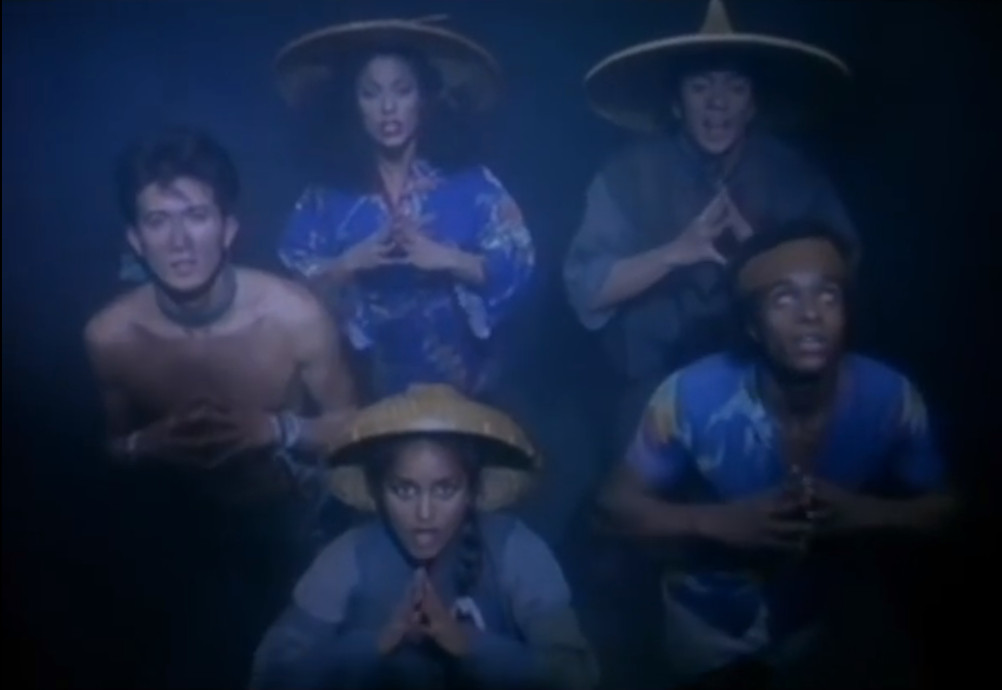 People Praying in One Night in Bangkok Music Video: Orientalist Imagery
People Praying in One Night in Bangkok Music Video: Orientalist Imagery
These figures then disperse, making way for the appearance of, presumably, the ‘God’ figure, explicitly identified as a “she” in the lyrics.
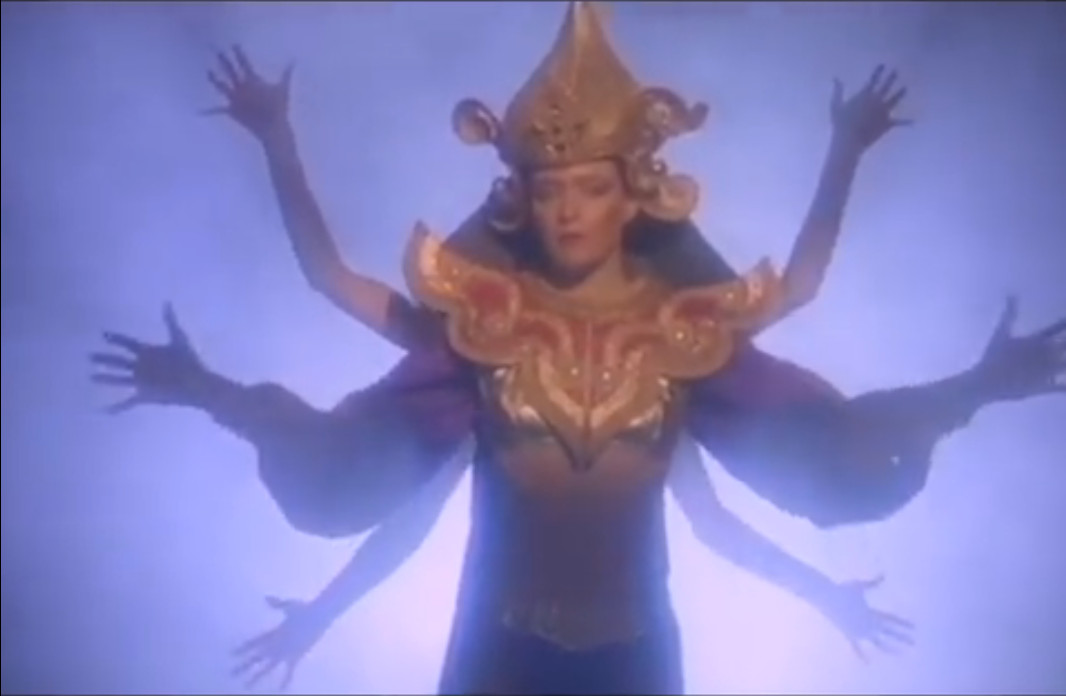 The "God" Figure in One Night in Bangkok Music Video
The "God" Figure in One Night in Bangkok Music Video
The subsequent verse further highlights the American’s limited perspective and narrow-mindedness:
One town’s very like another
When your head’s down over your pieces, brother
(It’s a drag, it’s a bore, it’s really such a pity)
(to be lookin at the board, not lookin at the city)
Whadda you mean? You see one crowded, polluted, stinking town…
As the chorus singers, acting as a kind of Greek chorus, admonish the American for his lack of appreciation for Bangkok, they pointedly accuse him in the music video. However, the American continues his dismissive rant, reinforcing the orientalist trope of the East as a monolithic and undifferentiated space, a “giant harem.”
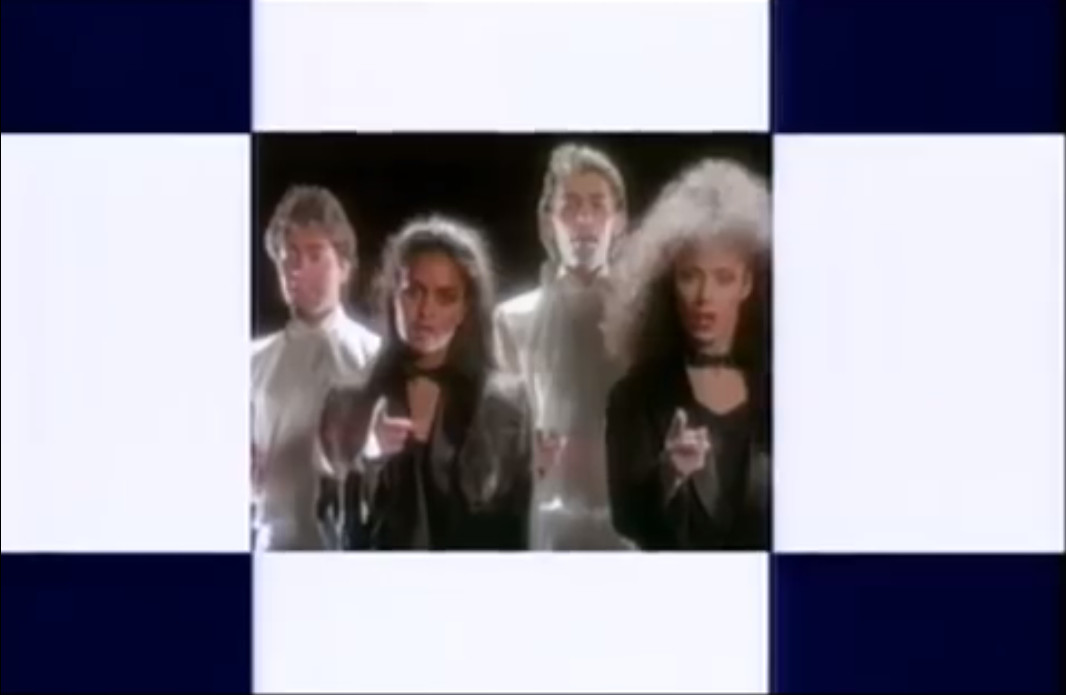 Accusatory Chorus Singers in One Night in Bangkok Music Video
Accusatory Chorus Singers in One Night in Bangkok Music Video
(Tea, girls, warm, sweet)
(Some are set up in the Somerset Maugham suite)
These lyrics are sung in an exaggeratedly high-pitched tone, possibly intended to mimic stereotypical “Asian” music, further contributing to the song’s orientalist soundscape. As these lyrics play, the music video persists in showcasing orientalist imagery, consistently portraying Bangkok as an exotic, steam-filled den of iniquity.
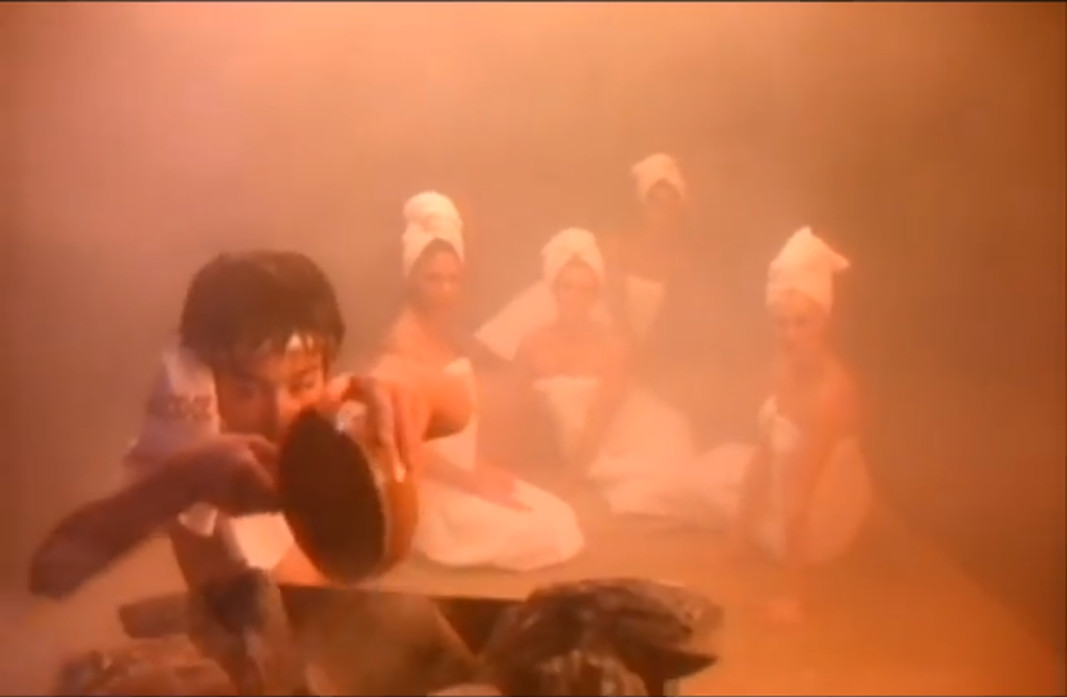 Steam Room Imagery in One Night in Bangkok Music Video
Steam Room Imagery in One Night in Bangkok Music Video
Get Thai’d! You’re talking to a tourist
Whose every move’s among the purest
I get my kicks ABOVE the waistline, sunshine
This final verse is particularly offensive. Combined with the overtly sexualized images in the music video, it establishes a stark binary between the West and the East. By ostensibly rejecting sex workers, “the American” attempts to assert his perceived rationality and moral superiority – his “purity” – in stark contrast to the East’s supposedly base, embodied exoticism. This reinforces the orientalist idea of the West as intellectually and morally advanced, while the East is depicted as sensual, corrupt, and focused on physical pleasures.
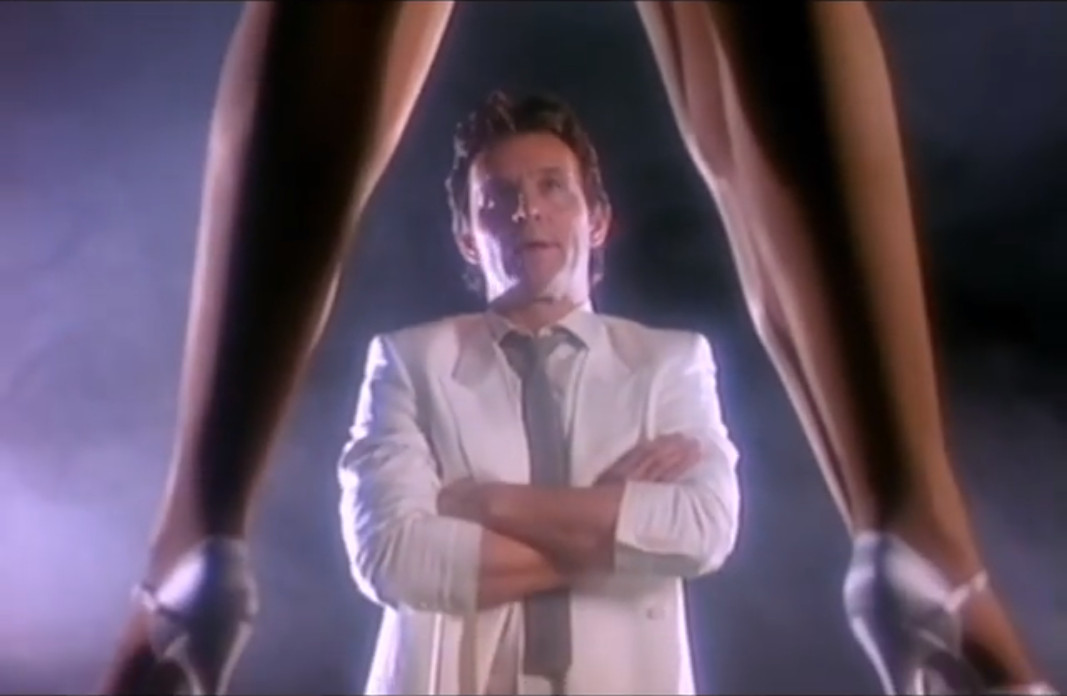 The American Rebuke in One Night in Bangkok Music Video
The American Rebuke in One Night in Bangkok Music Video
The subsequent chorus takes on a slightly different tone, drawing a comparison between God/angel/Devil in relation to someone approaching the American:
One night in Bangkok makes a hard man humble
Not much between despair and ecstasy
One night in Bangkok and the tough guys tumble
Can’t be too careful with your company
I can feel the devil walkin next to me
While this chorus maintains the exotic and potentially dangerous allure of Bangkok, the music video at this point introduces images of Thai fighters, reinforcing another stereotypical image of Thailand.
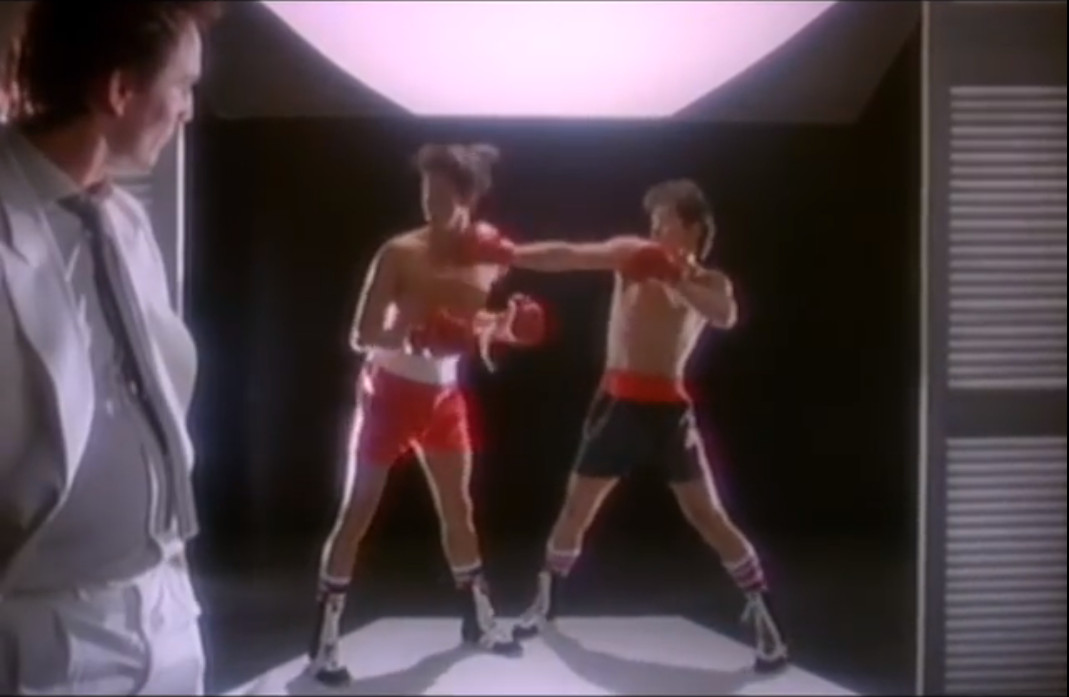 Thai Fighters in One Night in Bangkok Music Video
Thai Fighters in One Night in Bangkok Music Video
The American, naturally, is positioned as an observer, someone who watches and judges these spectacles from a position of privilege.
The remainder of the chorus is visually accompanied by further orientalist tokens: bizarre masks, individuals engaged in manual labor in simple clothing, and other stereotypical representations of Asian culture.
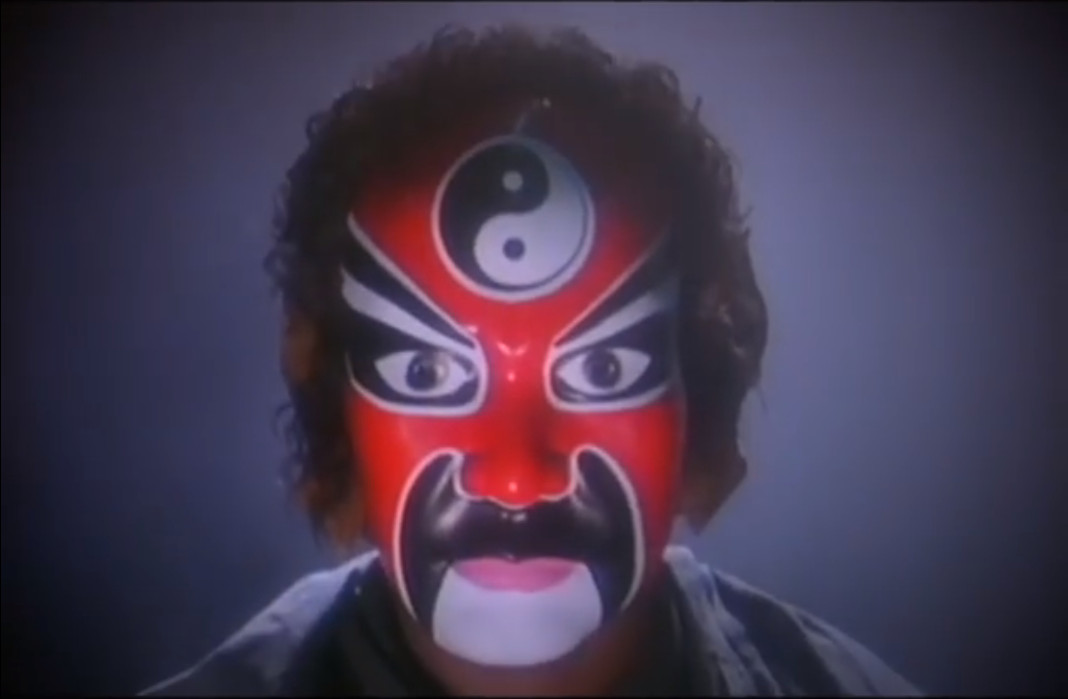 Mask Imagery in One Night in Bangkok Music Video
Mask Imagery in One Night in Bangkok Music Video
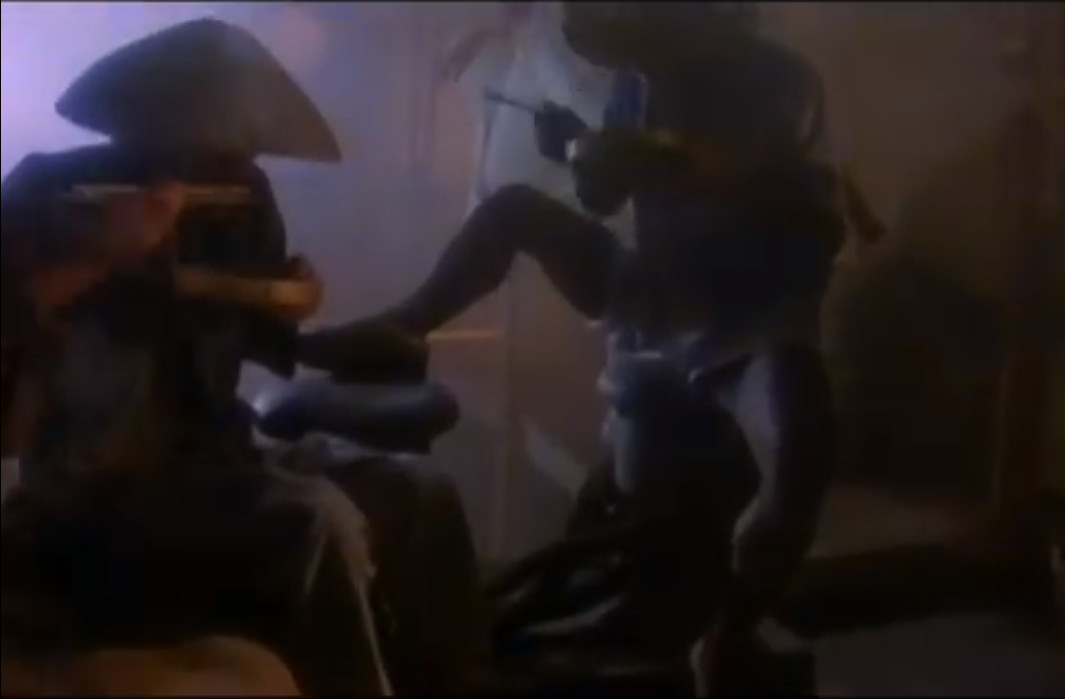 Chopsticks Scene in One Night in Bangkok Music Video
Chopsticks Scene in One Night in Bangkok Music Video
Notably, there’s a brief shot of incredibly unconvincing chopstick use. The actors appear to be merely mimicking eating, quickly shoving imaginary food towards their mouths, seemingly hoping viewers won’t notice the lack of authenticity.
The final verses begin with:
Siam’s, gonna be the witness
To the ultimate test of cerebral fitness
The use of “Siam,” the former name of Thailand, is an archaic term that further exoticizes and mystifies the nation, casting it as something ancient and detached from contemporary reality. This linguistic choice contributes to the overall orientalist portrayal by emphasizing a sense of historical otherness.
This grips me more than would a
Muddy old river or reclining Buddha
Here, the American dismissively references the Chao Phraya River, a significant geographical feature, and Wat Pho, home to a giant reclining Buddha statue – both important landmarks in Bangkok. This casual dismissal highlights the American’s self-absorbed and culturally insensitive nature. He prioritizes his “cerebral fitness” – the chess game – over the rich cultural and natural wonders of Bangkok, reinforcing the Western-centric view that intellectual pursuits are superior to appreciating non-Western culture.
I don’t see you guys rating
The kind of mate I’m contemplating
I’d let you watch, I would invite you
But the queens WE use would not excite you
So you’d better go back to your bars, your temples
Your massage parlors
In these concluding verses, the American again asserts his intellectual prowess, contrasting it with what he perceives as the base interests of the Thai people. He positions Thailand as a stereotypical orientalist fantasy centered on sex workers and “massage parlors.” By claiming that the “queens WE use” – referring to chess pieces and, metaphorically, intellectual strategy – would not interest the Thai populace, he reinforces the binary opposition between Western intellect and Eastern sensuality. This classic orientalist trope positions the West as the domain of reason and intellect, while the East is relegated to the realm of the mystical and the physical.
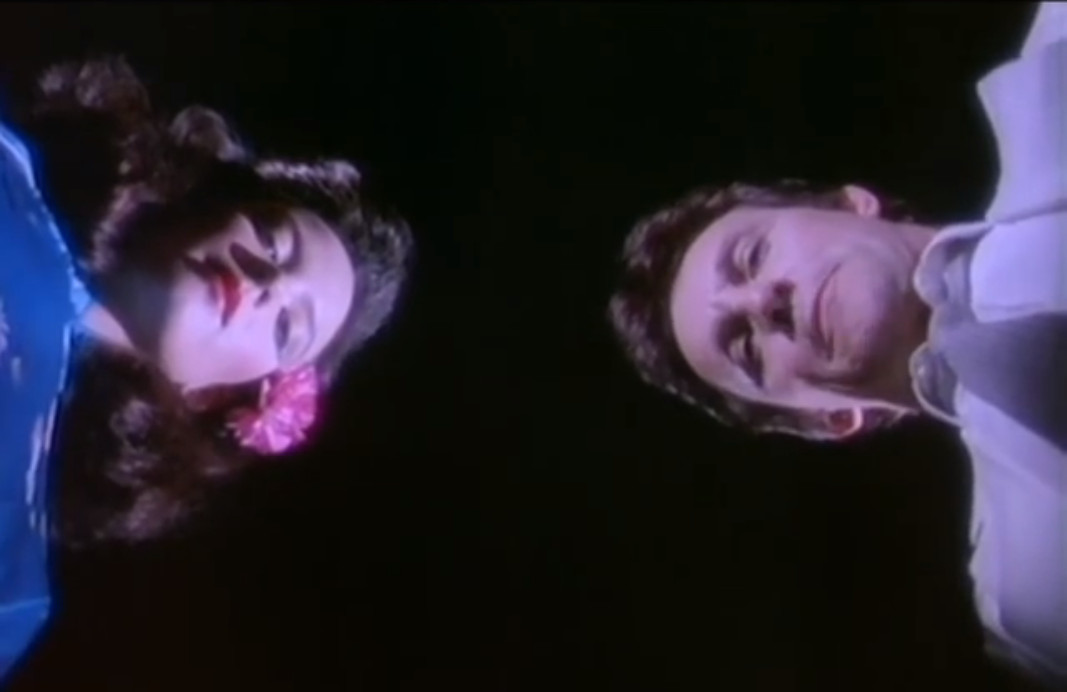 Murray Head Looking Down in One Night in Bangkok Music Video
Murray Head Looking Down in One Night in Bangkok Music Video
His obvious disdain for “massage parlors,” used here as a euphemism for places of sex work, is visually underscored as he literally looks down into the camera while uttering these words, conveying contempt and superiority.
The chorus then repeats, with slightly altered lyrics:
You’ll find a God in every golden cloister
A little flesh, a little history
This modified chorus reinforces the reductive view of the Orient as a place primarily defined by “fleshly transactions” and a superficial understanding of “history.” It suggests that Bangkok, and by extension the ‘Orient,’ is shallow and focused on the physical and sensual, lacking depth or genuine cultural substance beyond these aspects. The song continues to repeat choruses, while the music video shows dancers performing on a chessboard. The concluding shot of the music video, however, attempts a form of visual commentary.
The final scene depicts an Asian woman forcefully slamming a chess piece towards the camera. Edited in conjunction with a shot of the American looking upwards, this visual suggests that the woman is symbolically defeating the American at his own game – chess, representing intellect and Western dominance. However, this attempt at subversion is largely undermined by her passive portrayal throughout the rest of the music video. She is initially presented as an object of pursuit, maintains a passive gaze towards the camera, and is mostly seen silently playing chess with the American.
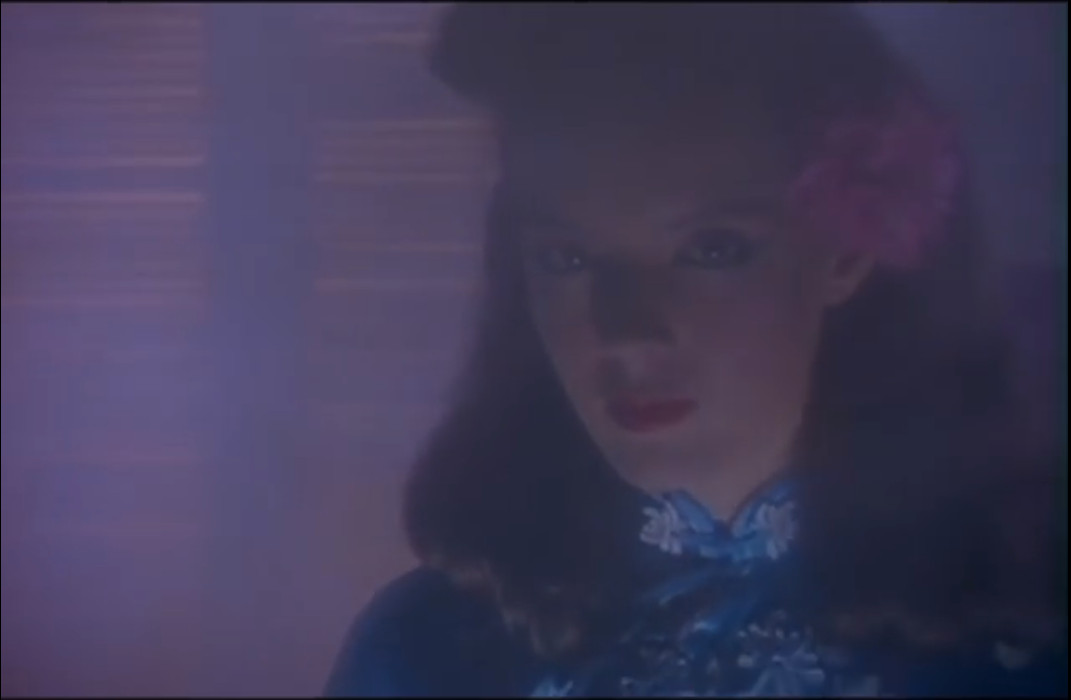 Passive Woman in One Night in Bangkok Music Video
Passive Woman in One Night in Bangkok Music Video
Any potential message of empowerment in the final shot is significantly weakened by the pervasive orientalism that permeates the entire music video.
Given that “One Night in Bangkok” originates from a musical about the Cold War, there may be broader political narratives embedded within the song that contribute to its orientalist depictions. However, released as a standalone pop single, it achieved significant commercial success, reaching #3 in Canada and #12 in the U.K. Even if the musical context attempts to address or critique orientalism, this nuance is largely lost when the song is played on the radio or MTV, divorced from its original theatrical setting. Ultimately, the vision of Bangkok presented in “One Night in Bangkok” is a quintessential orientalist fantasy. For those seeking to understand the basics of orientalism and its pervasive influence, “One Night in Bangkok” serves as a stark, readily accessible, and unfortunately, highly popular example – a veritable “Orientalism 101” in pop culture.
Like Loading…
